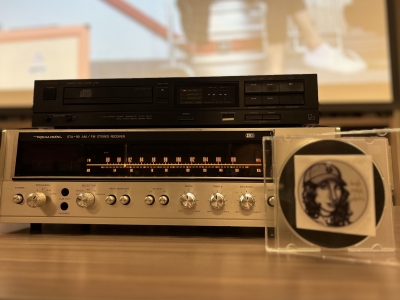More than two dozen experts from around the world will gather at the School of Journalism and Communication this weekend for an international round table called Media and Mass Atrocity: the Rwanda Genocide and Beyond. The event, running from Dec. 1-3, is being organized by Prof. Allan Thompson, as a follow up to his research on the role of the media during the 1994 Rwanda genocide.
“As the 25th anniversary of the 1994 Rwanda genocide approaches, there is still so much to learn about the nexus between mass atrocity and the media, an issue laid bare by the Rwanda tragedy,” said Thompson.
Carleton’s School of Journalism and Communication, in collaboration with the Centre for International Governance Innovation (CIGI) and the Montreal Institute for Genocide and Human Rights Studies (MIGS) at Concordia University, is pulling together the round table. The event is also supported by a Connections grant from the Social Science and Humanities Research Council (SSHRC).
Those who want to sit in at the round table and take part in various events over the weekend are required to register in advance: https://media-atrocity.eventbrite.ca
Organizers are also mounting a fundraising effort as part of Carleton’s Nov. 28 Giving Tuesday event to generate funds that would offset the cost of student participation in the round table: https://futurefunder.carleton.ca/project/media-mass-atrocity-rwanda-genocide-beyond/
The purpose of the round table is to forge an international network around the question of media and mass atrocity, to bring together key experts with students and young scholars, and to produce a digital platform and major publication to continue to engage the research community on this question.
“There are still lessons to be learned from Rwanda – when hate media fueled the killing and international media often misconstrued and misunderstood what was happening on the ground,’’ said Thompson. “But so much has changed since 1994, when there were no mobile phones, when social media didn’t exist and when the internet was in its infancy. Now we’re dealing with an entirely different media landscape when we look at mass atrocity events, with social media as an actor on its own.”
In a novel twist, organizers have put together a digital media team of journalism students who are covering every aspect of the round table and will be posting updates throughout on a number of social media platforms. You can follow along through Facebook Live posts on the round table Facebook page – https://www.facebook.com/MediaAndMassAtrocity/
– or through its Medium.com site: https://medium.com/media-and-mass-atrocity, where a full description of the agenda and profiles of all round table members has already been posted.
Pulitzer Prize-winning journalist and author Paul Watson – also a Carleton journalism grad – will be the keynote speaker at Friday’s opening ceremonies, kicking off at 6 p.m. in the atrium of Richcraft Hall.
On Saturday morning, retired general Roméo Dallaire will be the opening speaker for two days of panel discussions among the round table experts that will take place in the third-floor conference room in the Residence Commons building.
As more information becomes available and as the narrative of those events continues to evolve, we still have much to learn from the important case study of Rwanda about the role of media in stimulating mass atrocities. In particular, in an era of social media saturation, near-ubiquitous mobile device penetration, and dramatic shifts in traditional news media, it is more important than ever to examine the nexus between media and mass atrocity.
Social media tools can be used to inform and engage, but also – in an echo of hate radio in Rwanda – can also be used to demonize opponents and mobilize extremism. With enhanced and relatively inexpensive communications technologies, ordinary citizens around the globe can capture live footage of human rights abuses before journalists have the chance, making social media itself a global actor, affecting the responses of national governments and international organizations to threats against peace and security and human rights.
Monday, November 27, 2017 in Communication News, Journalism News, News
Share: Twitter, Facebook



